-
 Bitcoin
Bitcoin $118300
0.75% -
 Ethereum
Ethereum $4544
3.21% -
 XRP
XRP $3.128
-0.31% -
 Tether USDt
Tether USDt $1.001
0.02% -
 BNB
BNB $861.4
3.94% -
 Solana
Solana $192.2
3.12% -
 USDC
USDC $1.000
0.01% -
 Dogecoin
Dogecoin $0.2332
0.92% -
 Cardano
Cardano $0.9702
6.55% -
 TRON
TRON $0.3513
-0.44% -
 Chainlink
Chainlink $24.69
14.60% -
 Hyperliquid
Hyperliquid $47.42
1.65% -
 Stellar
Stellar $0.4307
0.74% -
 Sui
Sui $3.826
3.32% -
 Bitcoin Cash
Bitcoin Cash $590.6
0.12% -
 Ethena USDe
Ethena USDe $1.001
-0.01% -
 Hedera
Hedera $0.2560
2.83% -
 Avalanche
Avalanche $24.84
4.94% -
 Litecoin
Litecoin $122.0
2.95% -
 Toncoin
Toncoin $3.493
0.20% -
 UNUS SED LEO
UNUS SED LEO $9.460
-1.09% -
 Shiba Inu
Shiba Inu $0.00001316
2.12% -
 Uniswap
Uniswap $11.19
2.94% -
 Polkadot
Polkadot $4.059
3.61% -
 Dai
Dai $1.000
0.00% -
 Bitget Token
Bitget Token $4.686
2.09% -
 Cronos
Cronos $0.1530
2.18% -
 Monero
Monero $267.4
11.83% -
 Ethena
Ethena $0.7250
0.52% -
 Pepe
Pepe $0.00001121
3.26%
What is a decentralized autonomous organization (DAO)? How does its governance mechanism work?
A DAO uses smart contracts on a blockchain for decentralized governance, allowing members to vote on proposals and execute decisions automatically.
Apr 04, 2025 at 07:57 pm
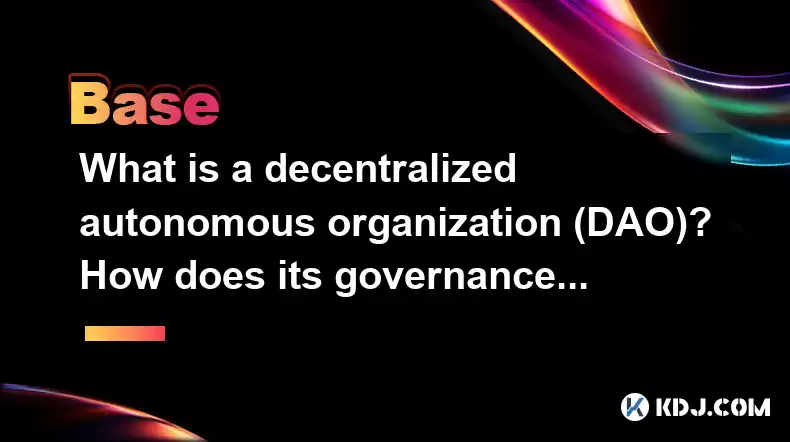
A decentralized autonomous organization (DAO) is a revolutionary concept within the cryptocurrency and blockchain space, designed to operate without centralized control. Instead, a DAO is governed by smart contracts on a blockchain, which execute automatically based on predefined rules and the collective decisions of its members. This structure aims to create a more democratic and transparent way of managing organizations, projects, or funds.
What Defines a DAO?
A DAO is characterized by its decentralized nature, meaning it does not rely on a central authority to make decisions or manage operations. Instead, decision-making power is distributed among its members, who can vote on proposals and changes to the organization. This is facilitated through smart contracts, which are self-executing contracts with the terms of the agreement directly written into code. These contracts run on a blockchain, ensuring that the rules of the DAO are transparent, immutable, and enforced automatically.
How Does a DAO's Governance Mechanism Work?
The governance mechanism of a DAO is crucial to its operation and is typically based on a token-based voting system. Here's how it generally works:
Token Ownership: Members of a DAO usually hold tokens that represent their stake in the organization. These tokens can be bought, earned, or distributed based on the DAO's specific rules.
Proposal Submission: Any member can submit a proposal for changes, new initiatives, or fund allocations. The proposal is then shared with the community for review.
Voting: Members vote on the proposal using their tokens. The voting period is set by the DAO's rules, and the outcome is determined by the number of tokens voted in favor or against the proposal.
Execution: If a proposal passes the voting threshold, the smart contract automatically executes the agreed-upon action. This could involve transferring funds, changing rules, or implementing new features.
Examples of DAOs in the Cryptocurrency Space
Several notable DAOs have emerged in the cryptocurrency ecosystem, each with unique purposes and governance models. For instance, The DAO was one of the first and most famous examples, launched on the Ethereum blockchain in 2016. It aimed to be a decentralized venture capital fund but faced significant challenges, including a high-profile hack that led to its eventual dissolution.
Another example is MakerDAO, which manages the DAI stablecoin. MakerDAO's governance involves MKR token holders voting on critical parameters such as stability fees and collateral types. This ensures that the stablecoin remains pegged to the US dollar while allowing community input on its operations.
Benefits of DAOs
DAOs offer several advantages over traditional organizations:
Transparency: All transactions and decisions are recorded on the blockchain, making them publicly verifiable.
Decentralization: By removing the need for a central authority, DAOs can operate more democratically and reduce the risk of corruption or mismanagement.
Efficiency: Smart contracts automate many processes, reducing the need for intermediaries and speeding up decision-making and execution.
Inclusivity: Anyone with tokens can participate in governance, potentially leading to more diverse and inclusive decision-making.
Challenges and Considerations
Despite their potential, DAOs face several challenges:
Security: Smart contracts are only as secure as their code. Bugs or vulnerabilities can lead to significant losses, as seen with The DAO hack.
Governance: Achieving consensus among a large, diverse group can be challenging. Low voter turnout or token concentration in the hands of a few can undermine the democratic nature of a DAO.
Legal Status: The legal recognition and regulation of DAOs vary by jurisdiction, creating uncertainty and potential compliance issues.
Scalability: As DAOs grow, managing the increasing complexity of governance and operations can become difficult.
How to Participate in a DAO
Participating in a DAO typically involves the following steps:
Research: Identify a DAO that aligns with your interests or investment goals. Research its purpose, governance model, and past performance.
Acquire Tokens: Purchase or earn the DAO's governance tokens. This can be done through cryptocurrency exchanges, participating in the DAO's activities, or other means specified by the DAO.
Engage with the Community: Join the DAO's community channels, such as forums, social media groups, or dedicated platforms. This helps you stay informed and participate in discussions.
Submit or Vote on Proposals: Once you have tokens, you can submit proposals or vote on existing ones. Follow the DAO's specific guidelines for proposal submission and voting.
Monitor and Contribute: Keep track of the DAO's activities and contribute to its success by participating in governance, providing feedback, or engaging in other community activities.
Frequently Asked Questions
Q: Can anyone create a DAO?
A: Yes, anyone with the necessary technical skills and resources can create a DAO. However, successfully managing and growing a DAO requires a clear purpose, a well-designed governance model, and an engaged community.
Q: How are disputes resolved in a DAO?
A: Dispute resolution in a DAO can be challenging due to its decentralized nature. Some DAOs implement on-chain governance mechanisms for dispute resolution, while others may rely on off-chain mediation or arbitration services. The specific method depends on the DAO's rules and the nature of the dispute.
Q: What happens if a DAO's smart contract is hacked?
A: If a DAO's smart contract is hacked, the impact can be severe, potentially leading to the loss of funds or the DAO's dissolution. Some DAOs have insurance or emergency funds to mitigate such risks, while others may rely on community efforts to fork the DAO and recover assets.
Q: Are DAOs subject to taxes?
A: The tax treatment of DAOs varies by jurisdiction. In some countries, DAOs may be treated as legal entities subject to corporate taxes, while in others, they may be considered partnerships or pass-through entities. Participants in a DAO should consult with tax professionals to understand their obligations.
Disclaimer:info@kdj.com
The information provided is not trading advice. kdj.com does not assume any responsibility for any investments made based on the information provided in this article. Cryptocurrencies are highly volatile and it is highly recommended that you invest with caution after thorough research!
If you believe that the content used on this website infringes your copyright, please contact us immediately (info@kdj.com) and we will delete it promptly.
- Kazakhstan's Crypto Leap: Bitcoin ETF and Central Asia's Digital Finance Future
- 2025-08-13 12:45:19
- BlockDAG Presale Blazes Past $371M: Fundraising Frenzy Fuels Crypto Sensation
- 2025-08-13 13:05:21
- Meme Coins: Chasing the 2025 Surge – Which Will Moonshot?
- 2025-08-13 10:25:23
- Bitcoin's Wild Ride: Rally, Pullback, and What's Next
- 2025-08-13 10:25:23
- Bitcoin, Bitmax, and Institutional Demand: A New Era of Crypto Investment
- 2025-08-13 10:45:12
- Solana, ROAM, and Airdrops: What's the Buzz in 2025?
- 2025-08-13 11:35:13
Related knowledge
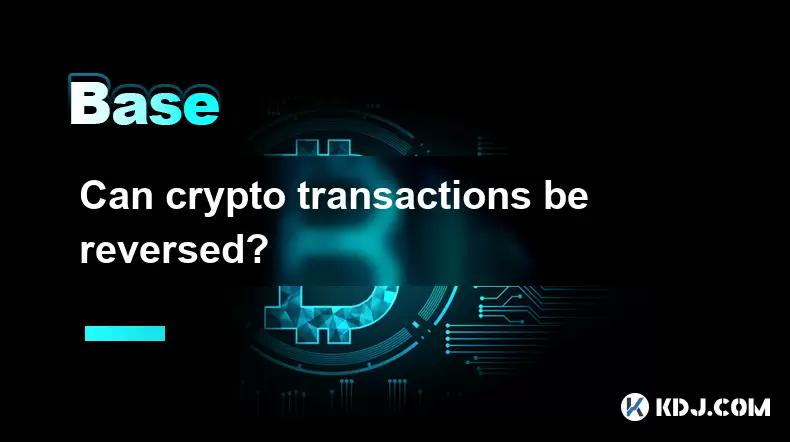
Can crypto transactions be reversed?
Aug 10,2025 at 01:35am
Understanding the Immutability of Blockchain TransactionsCryptocurrency transactions are built on blockchain technology, which is designed to be immut...
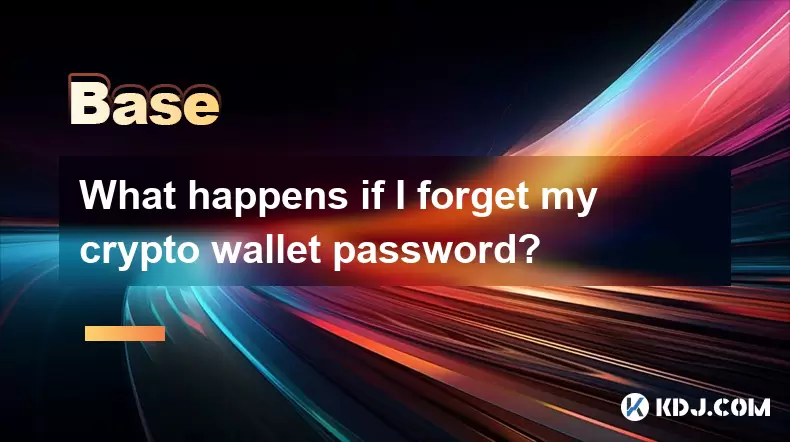
What happens if I forget my crypto wallet password?
Aug 09,2025 at 08:50am
Understanding the Role of a Crypto Wallet PasswordA crypto wallet password serves as a critical security layer that protects access to your digital as...
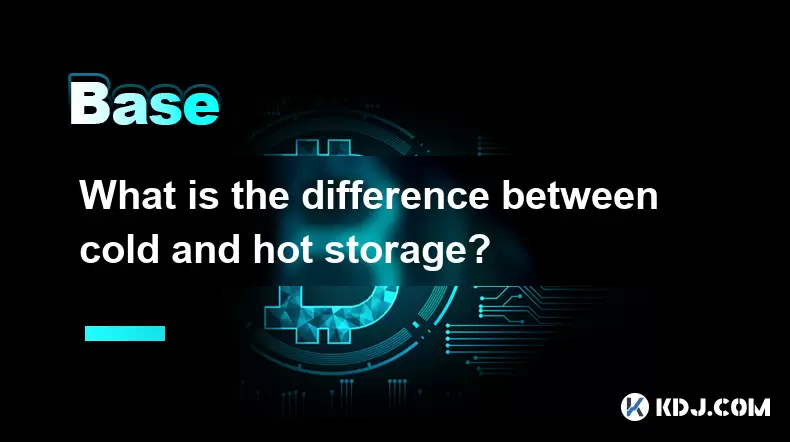
What is the difference between cold and hot storage?
Aug 12,2025 at 01:01am
Understanding Cold Storage in CryptocurrencyCold storage refers to offline methods of storing cryptocurrency private keys, ensuring they are not expos...
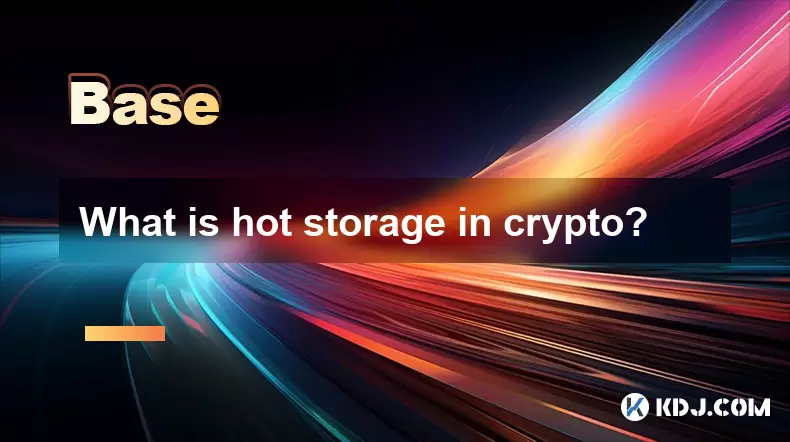
What is hot storage in crypto?
Aug 11,2025 at 07:08am
Understanding Hot Storage in CryptocurrencyHot storage refers to cryptocurrency wallets that are connected to the internet. Unlike cold storage soluti...

What is cold storage in crypto?
Aug 13,2025 at 11:35am
Understanding Cold Storage in CryptocurrencyCold storage in cryptocurrency refers to a method of storing digital assets offline, away from internet-co...
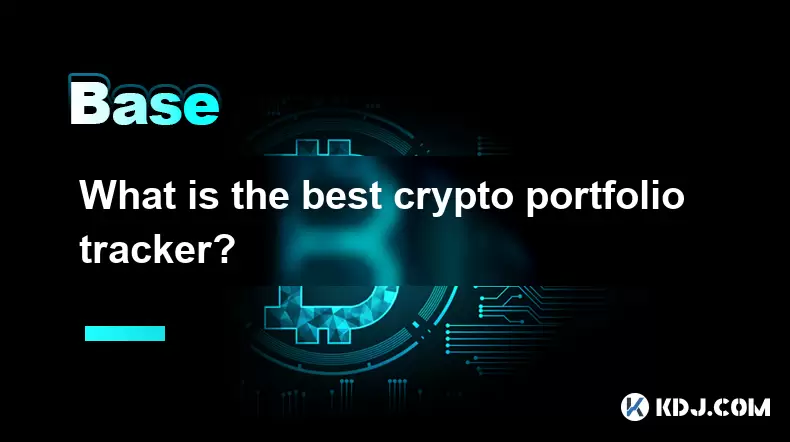
What is the best crypto portfolio tracker?
Aug 10,2025 at 05:08am
Understanding the Role of a Crypto Portfolio TrackerA crypto portfolio tracker is a digital tool designed to help investors monitor the performance of...

Can crypto transactions be reversed?
Aug 10,2025 at 01:35am
Understanding the Immutability of Blockchain TransactionsCryptocurrency transactions are built on blockchain technology, which is designed to be immut...

What happens if I forget my crypto wallet password?
Aug 09,2025 at 08:50am
Understanding the Role of a Crypto Wallet PasswordA crypto wallet password serves as a critical security layer that protects access to your digital as...

What is the difference between cold and hot storage?
Aug 12,2025 at 01:01am
Understanding Cold Storage in CryptocurrencyCold storage refers to offline methods of storing cryptocurrency private keys, ensuring they are not expos...

What is hot storage in crypto?
Aug 11,2025 at 07:08am
Understanding Hot Storage in CryptocurrencyHot storage refers to cryptocurrency wallets that are connected to the internet. Unlike cold storage soluti...

What is cold storage in crypto?
Aug 13,2025 at 11:35am
Understanding Cold Storage in CryptocurrencyCold storage in cryptocurrency refers to a method of storing digital assets offline, away from internet-co...

What is the best crypto portfolio tracker?
Aug 10,2025 at 05:08am
Understanding the Role of a Crypto Portfolio TrackerA crypto portfolio tracker is a digital tool designed to help investors monitor the performance of...
See all articles

























































































